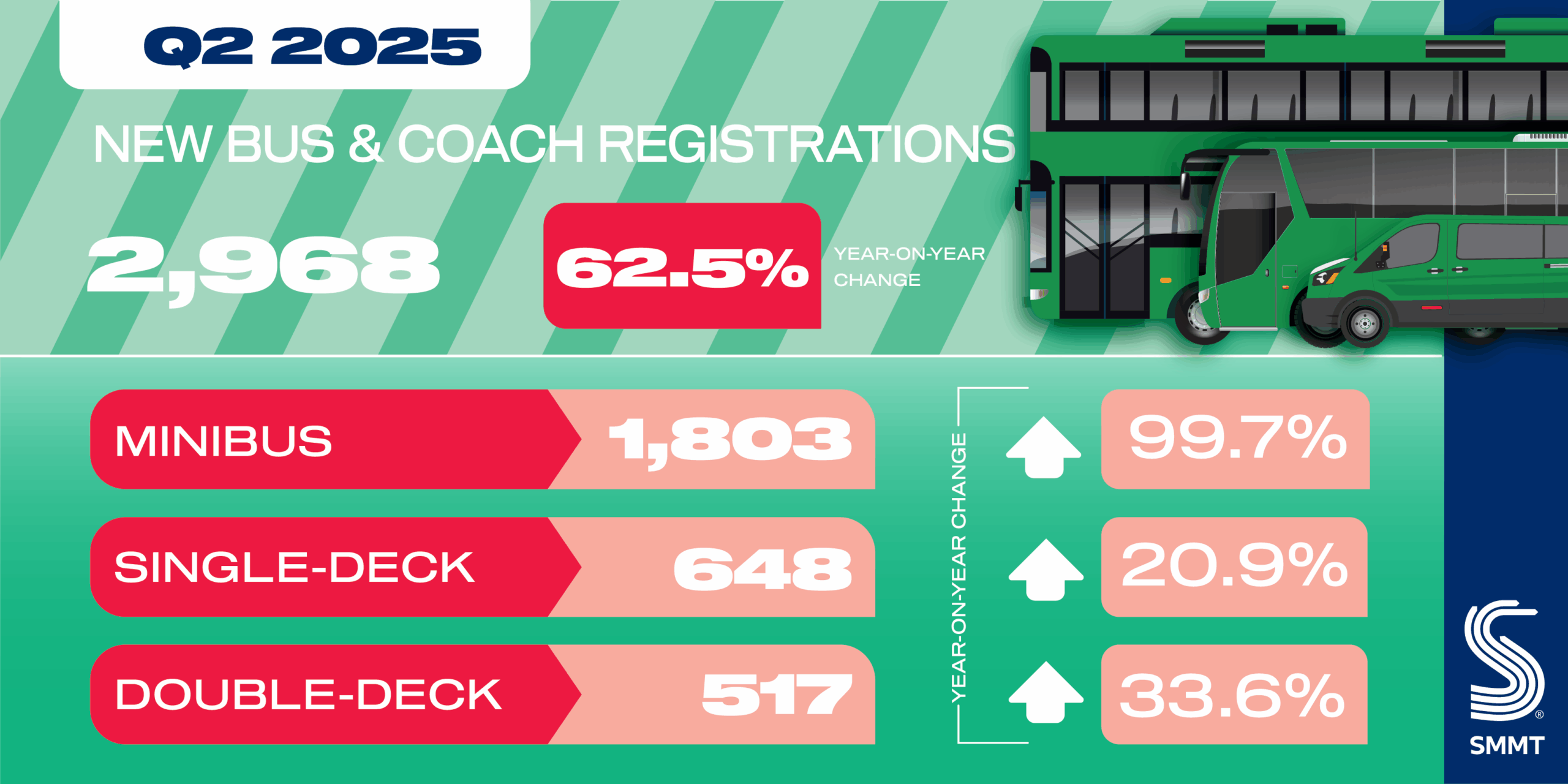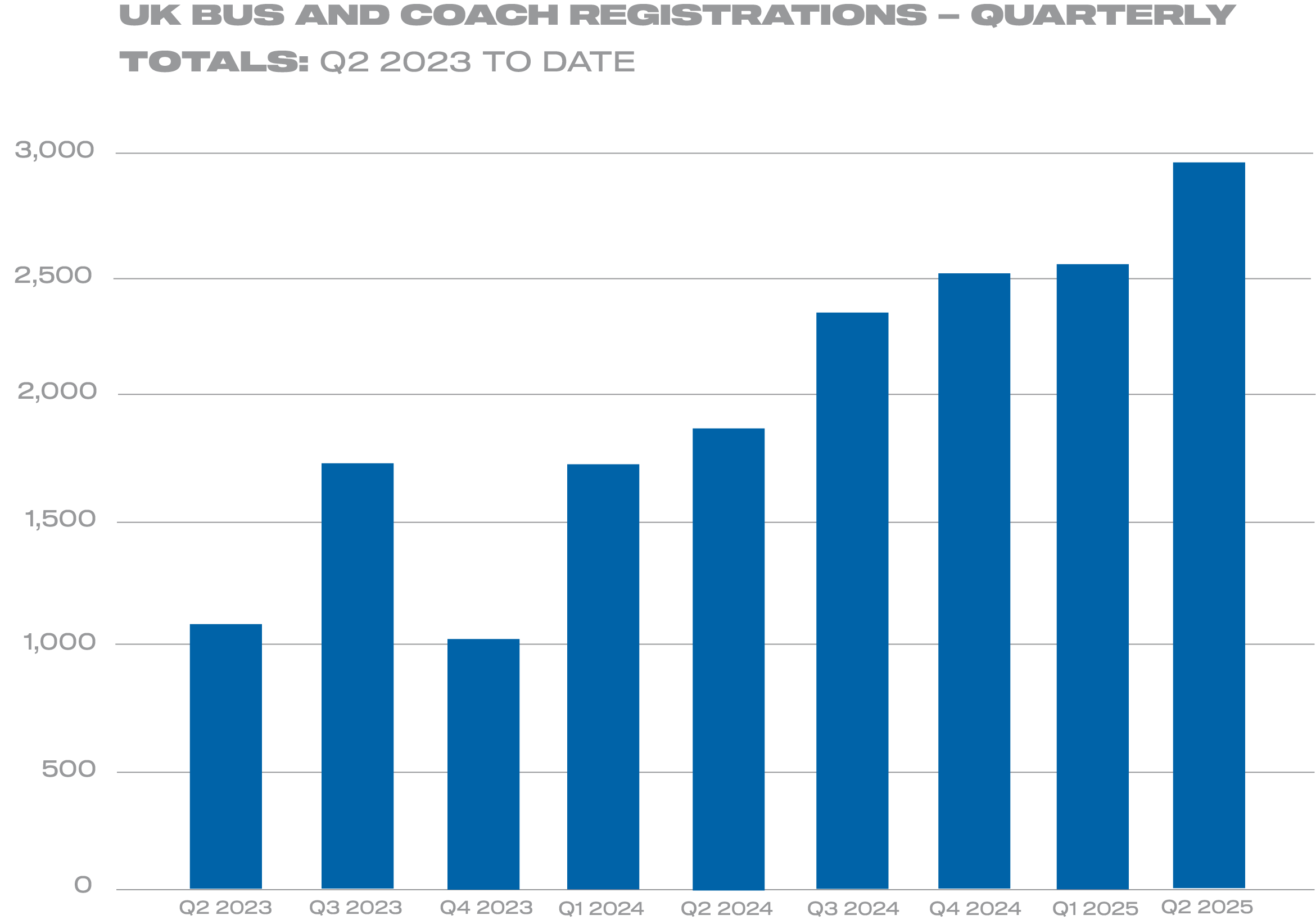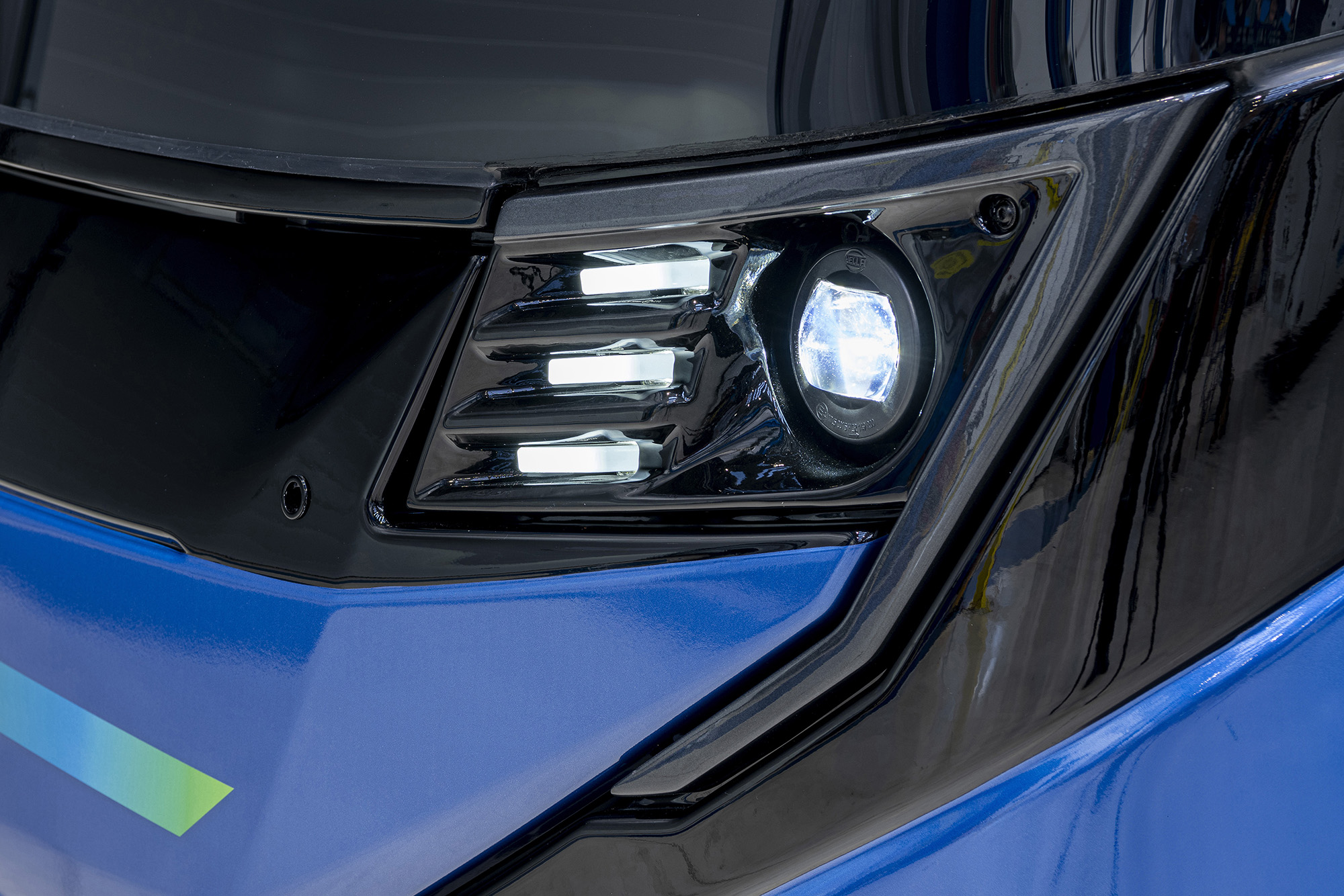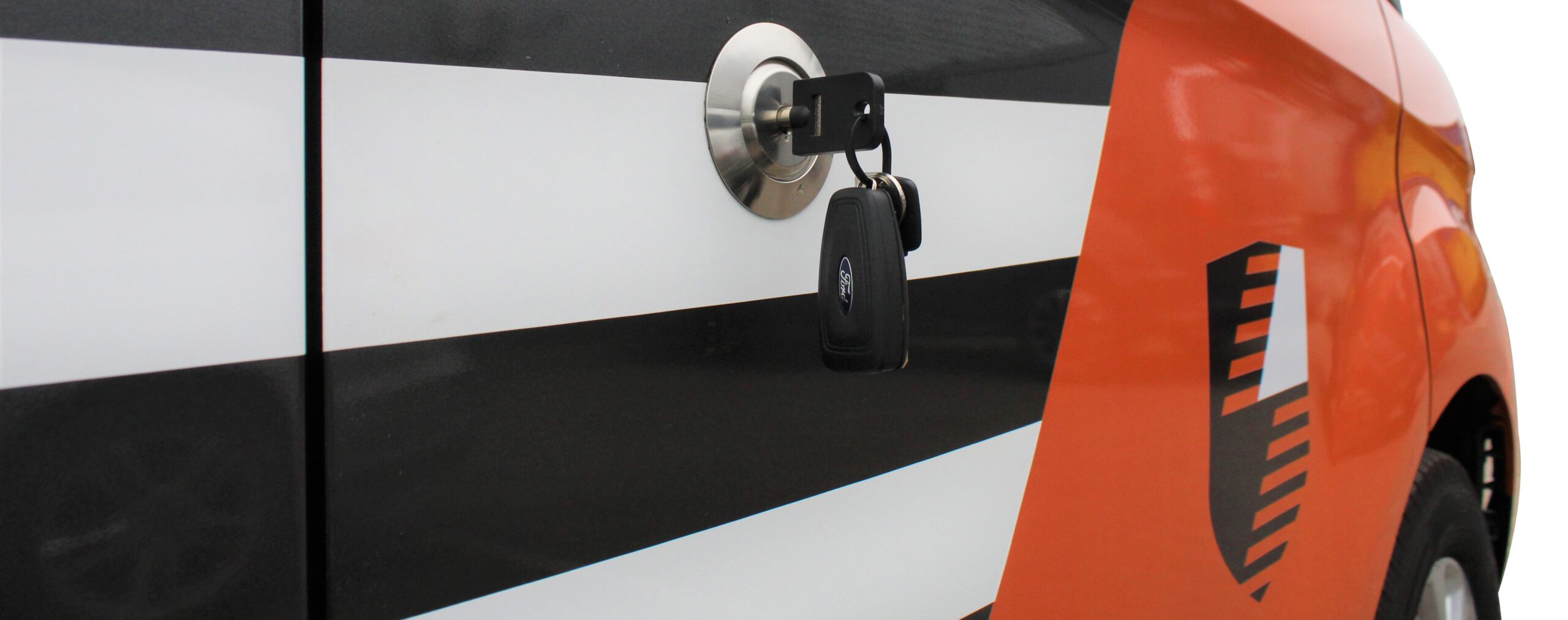
- New bus, coach and minibus deliveries up 62.5% to 2,968 units in second quarter of 2025.
- Demand rises in every segment with volume growth driven by minibus uptake, up 99.7%.
- Buses driving decarbonisation with 45.3% rise in zero emission rollout, accounting for one in five new buses reaching the road.
Data download
Bus & Coach Q2 registations

New UK bus, coach and minibus registrations surged by almost two thirds (62.5%) in Q2 with 2,968 registrations, according to the latest figures published today by the Society of Motor Manufacturers and Traders (SMMT). It represents the ninth consecutive quarter of growth as rising passenger levels give fleet operators confidence to invest.1
Volume growth was driven primarily by a doubling in new minibus uptake, up 99.7% to 1,803 units, while deliveries of single decker buses and coaches grew by 20.9% to 648 units. Demand for double deckers also rose significantly, up 33.6% to 517 units.
Buses play a vital role in delivering affordable and accessible mass mobility across the UK – a role that was reinforced with robust uptake across all UK nations in Q2. England benefitted from a 52.7% rise in uptake, to 2,377 units – accounting for eight in 10 (80.1%) UK registrations. The second largest market, Scotland saw the most dramatic growth, with volumes up 378.1% to 502 units, driven in part by investments supported by ScotZEB funding. Fleet renewal declined in Wales and Northern Ireland – down -56.9% and -18.8%, although these markets are volatile due to large growth last year, and small volumes of just 50 and 39 registrations respectively.2

The sector is also playing an active role in decarbonising road transport and improving local air quality, with zero emission uptake rising by 45.3% in Q2 compared with the same period last year, with 616 registrations. In the first half of 2025, some 1,355 zero emission buses have joined UK roads – an 81.6% increase on the same period last year3.
Britain’s success in decarbonising the bus market is the result of huge industry investment to deliver new products – with more than 20 zero emission models currently available – as well as substantial government support for fleet renewal via Zero Emission Bus Regional Area funding. Many larger operators are better placed to invest than smaller and rural fleets, however, which face unique challenges including lower ridership and routes covering greater distances. A longer-term strategy to support their transition is needed, including a national plan for infrastructure at depot, shared hub and enroute locations, ensuring no community is left behind.
Britain’s new bus, coach and minibus market continues to gain momentum with another quarter of growth making it nine months in a row – a welcome period of market recovery after 2020’s nadir. The growth has been underpinned by rising passenger levels and zero emission uptake as bus decarbonisation continues to be a real success story, cutting emissions, improving air quality and increasing access to affordable, mass green mobility across the country.
Notes to editors
- DfT: Daily local bus passenger and trip statistics
- New bus, coach and minibus registrations in Wales, Q2 2025: up 268.5% to 116 units
- 746 new ZEV buses registered in 1H 2024


